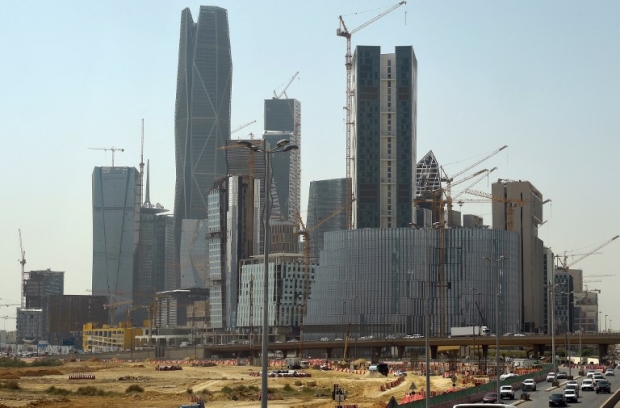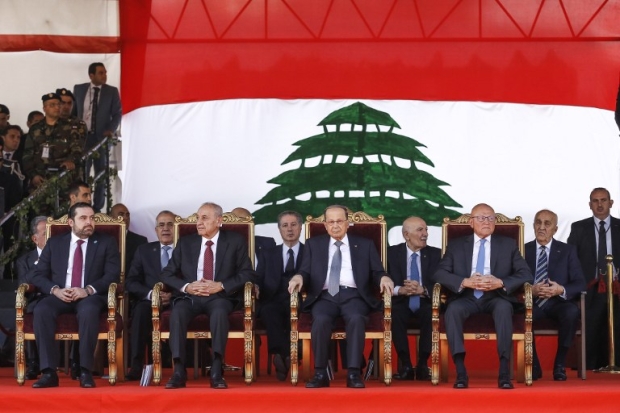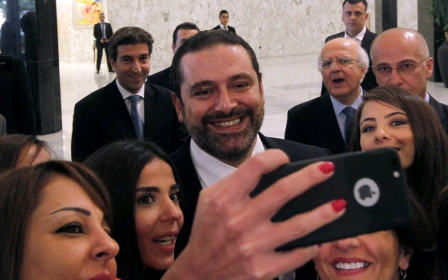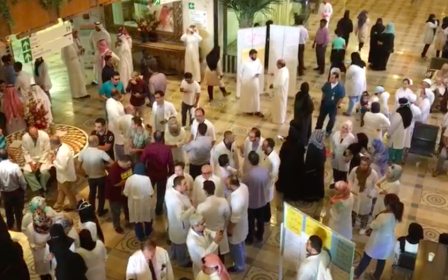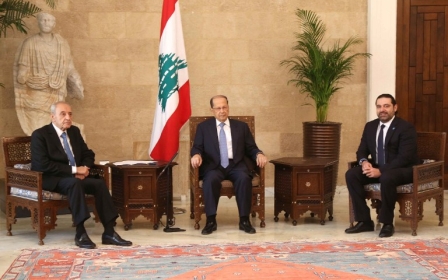Saad Hariri's Saudi problem: Desperate needs, desperate deeds
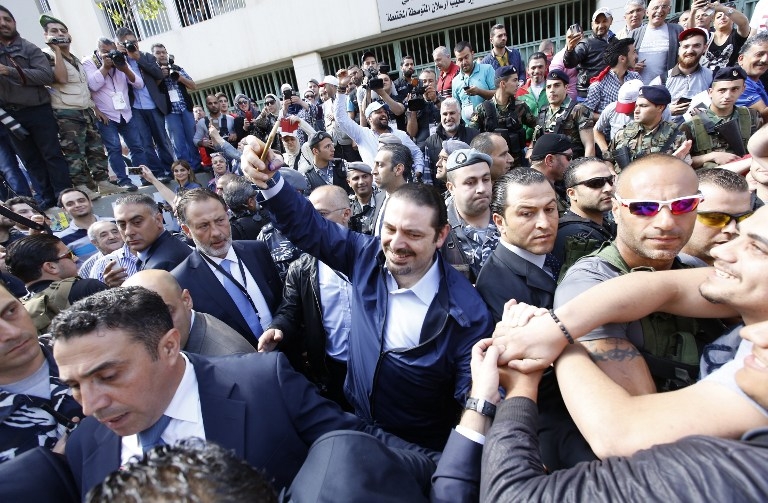
And so Lebanon’s dance for power finally came to an end.
After 29 months of political deadlock, Michel Aoun saw his presidential dream become reality thanks to the sudden turnabout of Saad Hariri, who threw his weight behind the 81-year-old ex-general and in return was appointed prime minister.
Desperate needs lead to desperate deeds. And Saad Hariri seems a desperate man indeed
A remarkable turn of events, as we now find young Hariri in bed with the pro-Syrian block he opposed for almost a decade. It includes the country’s main Shia party Hezbollah, which fights alongside Bashar al-Assad across the border in Syria and, falsely or not, stands accused in the assassination of Saad’s father, Lebanon’s former prime minister Rafik Hariri.
A remarkable turn of events, and yet not entirely unexpected. After all, desperate needs lead to desperate deeds. And Saad Hariri seems a desperate man indeed.
They say it takes three generations to squander a family fortune. Well, the 46-year-old is well on his way to destroy his father’s in just one.
Struggles in Saudi
The Forbes World’s Billionaires list on 2 December 2016 estimated Saad Hariri to be worth $1.3bn, down from a staggering $4.1bn shortly after his father’s assassination in February 2005.
Hariri’s fall down the ladder of fortune is first and foremost due to the financial woes of Saudi Oger. Founded in 1978, the construction giant helped build the Saudi kingdom and in the process made Rafik Hariri, the son of a simple orange farmer, a multi-billionaire.
Of late, there have been numerous reports about thousands of migrant workers not paid for many months and left stranded in the Saudi Kingdom. In June, some 150 of them set fire to a fleet of Saudi Oger vehicles in front of the company headquarters in Jeddah.
Generally, the struggling Saudi economy is blamed for the firm’s malaise. Due to the low oil price, the Saudi government is not paying the bills for past projects and handing out ever fewer contracts for new ones. Mismanagement, among others by Saad’s younger brother Ayman, is another often cited cause.
While both are part of the truth, they are arguably not the whole truth. For one, the oil price – much due to the Saudis’ own doing – only collapsed in 2014, while Saudi Oger’s problems started three years prior to that.
In January 2011, Lebanese broadcasting company New TV aired a leaked audio tape on which Hariri can be heard comparing the Saudi Assistant Minister of Interior, Prince Mohammed bin Nayef, to the “bloodthirsty” Syrian military intelligence chief Assef Shawkat.
Bin Nayef at the time was in charge of the Saudi counter-terrorism program and was a known hard man. Still, despite Hariri’s media outlets bending over backwards with denials and apologies, he was not a happy man being mentioned in one breath with his Syrian counterpart.
Within weeks, a former editor of a Lebanese newspaper told me, Saudi Oger was raided by Saudi police and accused of paying kickbacks. The company reportedly also missed out on two multi-billion dollar contracts that had seemed done deals.
Reversal of fortunes
Shortly after, in August 2011, Saudi Oger signed loans worth $2bn with a conglomerate of Saudi and regional banks, which was followed by a $1bn loan in February 2013.
And fact is things have not improved since. In September, Reuters reported on negotiations taking place between Saudi Oger and the government over some $8bn in payments due for past projects and the possibility of the state taking over parts of the company.While it is notoriously difficult to see behind the veil of Saudi power, it is no secret that politics and business in the Kingdom often go hand in hand. It arguably did not help Saudi Oger’s fortunes that the powerful Bin Nayef in January 2015 became even more powerful when he was appointed Deputy Crown Prince.
They were abruptly stopped in July by the government, which had been “aggressive” in the negotiations. No reason was given. Shortly after, according to the same source, Samba Financial Group became the first lender to sue Saudi Oger over outstanding payments.
Meanwhile, 31,000 employees in Saudi Arabia have filed complaints over unpaid wages, while some 200 French engineers and managers – not paid for nine months – are preparing to sue the firm.
Meanwhile, there have been endless reports about selling off assets: from the Hariri’s 45-bedroom London mansion to most recently, Saudi Oger’s 21 percent stake in Arab Bank worth an estimated $1bn.
Hariri’s lack of funds has seriously weakened his position in Lebanon. The Al Mustaqbal political party is in disarray with some members, most notably Tripoli’s Ashraf Rifi, in open revolt. Hariri’s media umbrella under the same name in 2015 had not paid salaries for at least 6 months.
Watch the contracts
With finances dwindling and the road to Riyadh seemingly closed, it should come as no surprise that Hariri has turned his attention to his homeland to reverse his fortunes, even if that entails embracing his former adversaries. Also, it is not the first time Hariri has moved in mysterious ways.
Hariri’s move to support Aoun for president, and thus join the political block he has opposed for so long, seems his only chance for financial and political survival
About a year ago, he surprised friends and foes when, out of the blue, he announced that he was backing Suleiman Frangieh for president. Frangieh stems from a well-known political family that has always had close ties with Damascus. The plan, which enjoyed French support, backfired spectacularly.
Until then, Hariri’s candidate for the top job had always been Samir Geagea, who happens to be Frangieh’s archenemy. In the early years of the Lebanese Civil War, Geagea took part in a raid on the Frangieh stronghold in Ehden killing some 40 people, including Suleiman’s father, Tony.
If Frangieh were to become president, Geagea would have been out of the picture completely. And so he decided to jump ship and join the Aoun/Hezbollah faction. As a result, the deadlock for the Lebanese presidency continued with Hariri even more isolated than before.
Hariri’s move to support Aoun for president, and thus join the political block he has opposed for so long, seems his only chance for financial and political survival. In Lebanon, too, business and politics go hand in hand.
As prime minister, Hariri will have a close eye on all outgoing government contracts and he may be able to move an ally into a lucrative ministry. His renewed position of power and prestige may even interest the Saudi royals in Riyadh.
Who knows, they may reward him with a contract for Saudi Oger or, at the very least, pay their outstanding debts.
- Peter Speetjens is a Dutch journalist who lived in Lebanon for 20 years, regularly travels to India and has a special interest in how 19th century writers helped shape our conceptions of the world today.
The views expressed in this article belong to the author and do not necessarily reflect the editorial policy of Middle East Eye.
Photo: Saad Hariri takes a selfie as he leaves a polling station after voting for the municipal elections on 8 May 2016 in Beirut (AFP)
Middle East Eye propose une couverture et une analyse indépendantes et incomparables du Moyen-Orient, de l’Afrique du Nord et d’autres régions du monde. Pour en savoir plus sur la reprise de ce contenu et les frais qui s’appliquent, veuillez remplir ce formulaire [en anglais]. Pour en savoir plus sur MEE, cliquez ici [en anglais].



